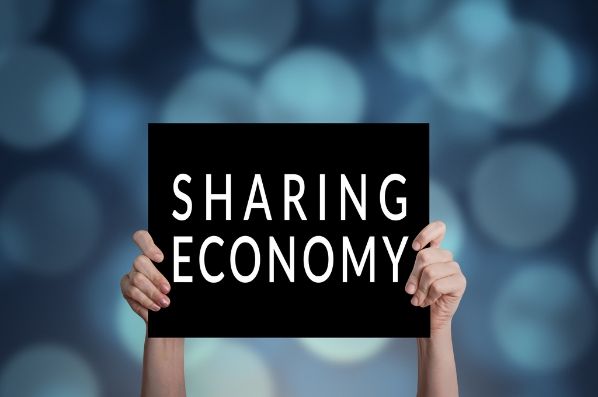Philadelphia is housing a lot of out-of-town guests this week, while Democratic legislators, politicos, and celebrities flood the area for the Democratic National Convention (DNC). Hotel chains no longer have a lock on the market for accommodations thanks to companies like Airbnb. Philly hotels are busy but not nearly as busy as Denver hotels back in 2012. As Bloomberg explains:
About 40,000 people are in Philadelphia for the convention, and Airbnb says 7,000 of them are using its home rental services, staying in spaces rented out by 3,000 hosts. By contrast, people have booked about 15,000 hotel rooms, according to the Philadelphia Convention & Visitors Bureau.
The Democratic convention drew significantly more guests than the Republican convention last week in Cleveland, in which 1,100 Airbnb hosts rented out rooms to 2,500 people. That tracks a partisan divide in Airbnb users from past political conventions. In 2008, there were 49 hosts at the Democratic convention in Denver. Just two people rented out rooms at that year’s Republican convention in St. Paul, Minnesota.
The popularity of the sharing economy has skyrocketed in recent years. Companies such as Uber, Lyft, and Airbnb provide convenience; unique local experiences; income-generation for service providers; and access to safe, cheaper, and more efficient services for consumers. Too bad policymakers have been slow to catch on, even choosing to fight innovation rather than supporting it.
Airbnb obviously has a stake in this argument but we still want to take note of their new poll released this week and which supports other findings about the popularity of the sharing economy. Two out of three Americans (67 percent) support sharing economy companies like Lyft, Uber, and Airbnb and three out of four millennials have a favorable opinion. Some 58 percent of Millennials and half of Americans overall view Airbnb favorably. Nearly three out of four Americans and 81 percent of Millennials want Airbnb to legally operate in their area.
At 31 percent, Millennials now match their Baby Boomer parents and grandparents in terms of percentage of the electorate, which means that they have the potential to wield tremendous political power to push for an agenda that benefits this generation and future generations. Among all voters (83 percent), but especially Millennials (85 percent), selecting a President who embraces innovation is overwhelmingly important.
When we compare party platforms and the track records of progressive and conservative policy leaders, we see a disconnect though. Many progressive leaders are anti-sharing economy. Hillary Clinton, for example, has railed against the sharing economy and how it doesn’t produce the “good jobs” that have been hallmarks of our economy. Perhaps she means jobs lobbied for by unions and well-funded associations.
Sharing economy companies are a target for local and state regulators who don’t view innovation favorably, but as a threat to traditional industries and in need of regulation. Airbnb, for example, has been facing pressure to halt operations in some cities. And recently, Democratic senators Elizabeth Warren, Dianne Feinstein, and Brian Schatz asked the Federal Trade Commission to investigate how short-term rentals (such as Airbnb rentals) are pushing the costs of living and causing housing shortages.
With popularity of the sharing economy high among the rank-and-file, but low among leaders, there is a big re-education campaign underway at the Democratic convention on the virtues and popularity of the sharing economy with the message: hands-off the sharing economy.
Recode reports:
… the dominant theme of a Tuesday morning panel at the Democratic National Convention in Philadelphia, organized by Airbnb.
Nutter sat between Uber adviser (and ex-Obama ‘08 campaign manager) David Plouffe and Airbnb policy chief (and ex-Clinton White House adviser) Chris Lehane, two Democratic establishment stalwarts who made the jump to Silicon Valley in recent years.
For Airbnb, the panel was just one part of a broader push at the DNC, the goal of which is to win over more Democratic hearts and minds. And the company needs all the Democratic Party help it can get as its fight against anti-Airbnb lawmakers nationwidecontinues to intensify.
The sharing economy is pulling a daring feat of undercutting their opposition and rallying their supporters. Time will tell whether this strategy will work, but as the economy continues to shift away from traditional jobs and younger generations embrace the opportunities and services that innovation generates, it will be increasingly harder for progressives to fight the tide of real market-driven progress.


